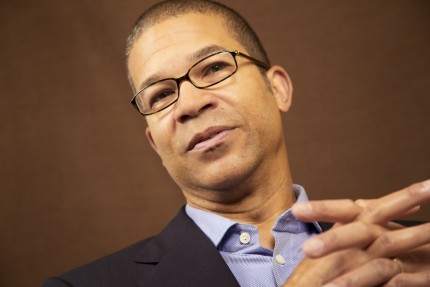
This edition of 5 Questions features Dr. Andrew Thorn. Dr. Thorn wrote a guest post on legacy last year, so I was excited when I had the opportunity to interview him about his new book Leading with Your Legacy In Mind. I know you’ll love our conversation and the book as well.
In the preface for the book, you give a personal take on the struggle between career and family. What’s one strategy from the book that could help someone breakthrough?
Choose to be guided by purpose instead of passion. The purpose of your work is not to be passionate, it is to be useful, to be honorable, and to be of value to your community. When we align with our passion we are constantly caught in the struggle of trying to feed our own self-interests. When we align with our purpose we make a difference, we add value, and we connect our actions to our values.
In our society, fame (even on a small scale), money and status drive many of us to leave our legacy in the dust. Is legacy becoming a forgotten art?
We have forgotten what legacy means and so naturally creating a legacy is a forgotten art. Too often we confuse it with impact, but that is what others feel. We carry our legacy with us. It is the ultimate answer to the question “Who am I?” That is why it is so important for each of us to live and lead with our legacy in mind.
You have a chapter in the book addressing the move from change to growth. What’s that all about?
Change is always driven by external pressures. None of us change because we want to, or because we like to. We may tell ourselves that we do it for those reasons, but in our most truthful moments, we recognize that we only change when we have to. When we do for external reasons, we rarely can sustain the change.
Growth on the other hand is internally motivated. It is the answer to our deepest yearnings and aspirations. It comes about as a result of true desire. This is what makes growth easier to sustain. There are still challenges and trials along the way, but we are committed to our own idea, so we keep at it when the going gets tough.
I read recently, that organizations spend billions on leadership development annually. Are we getting a good ROI in developing leaders?
Sadly, most leadership development initiatives fail to live up to their promise. This is because they are generally focused on the wrong things. Leadership is not a competency or a skill. It is a behavior. Most organizations are ill equipped to measure and manage behavior, but they are very effective at measuring and managing performance. Naturally, and without a lot of effort, most leadership development initiatives become nothing more than just another performance management strategy. When a leadership initiative becomes tied to performance the game is over. Instead of reaching deep into authenticity, it remains an effort to cover up weaknesses and threats. To grow, our weaknesses and threats need to be exposed so that we can understand them and even use them to our advantage.
Another reason why so many initiatives fail is because we forget that leadership is an individual journey. This makes it difficult to teach it in a group setting, but organizations are afraid that it will be too expensive to work with each individual. They know they have to do something so they invest in ineffective strategies, just so they can check the box. We can never check the box on our leadership development efforts. It must be ongoing or we will create a stagnant culture. No one wants that.
Do you believe we’d have better balance in life, if we made legacy a top-of-mind matter? What kind of positive outcomes might we see there?
I think balance happens naturally, so the only time we feel unbalanced is when something is wrong. In life and in work, the unbalances we feel are directly related to our own inability to focus on the things that matter most. We are easily distracted by our business and busyness and we run out of time and energy to deal with what really matters. This is an easy problem to fix. All we need to do is adjust our focus. This doesn’t mean that we forget the things that matter least, which would be impossible because they are directly tied to short-term demands. It simply means that we take time each day to put the big picture in perspective and then do our best to allow our short-term actions to be aligned with bringing that picture to life. When we do this, our legacy is strengthened and we are happy. Most people are surprised by how easy it is to focus and recalibrate their life and work experiences.

A pioneer and leader in the field of work/life balance; Dr. Andrew Thorn is widely recognized for his breakthrough thinking on how to help people discover their sense of purpose and create greater meaning from their personal and professional experiences. He personally guided 2 of the top 50 business thinkers, currently listed on The Thinkers 50. His work extends to over 50 major corporate clients and over 250 Senior Leaders from many of the Fortune 500 Companies.
Graduating with a Masters in Business Administration from Pepperdine University, Dr. Thorn also holds a PhD in Consulting Psychology and a Masters in Personal and Executive Coaching.
He resides near Los Angeles, CA with his wife of 25 years, Stacy, and their seven children.








![Carl_E._Reid_Blue_Sports_Coat_Picture[1]](http://www.epicliving.com/epic/wp-content/uploads/2014/09/Carl_E._Reid_Blue_Sports_Coat_Picture1.jpg)






